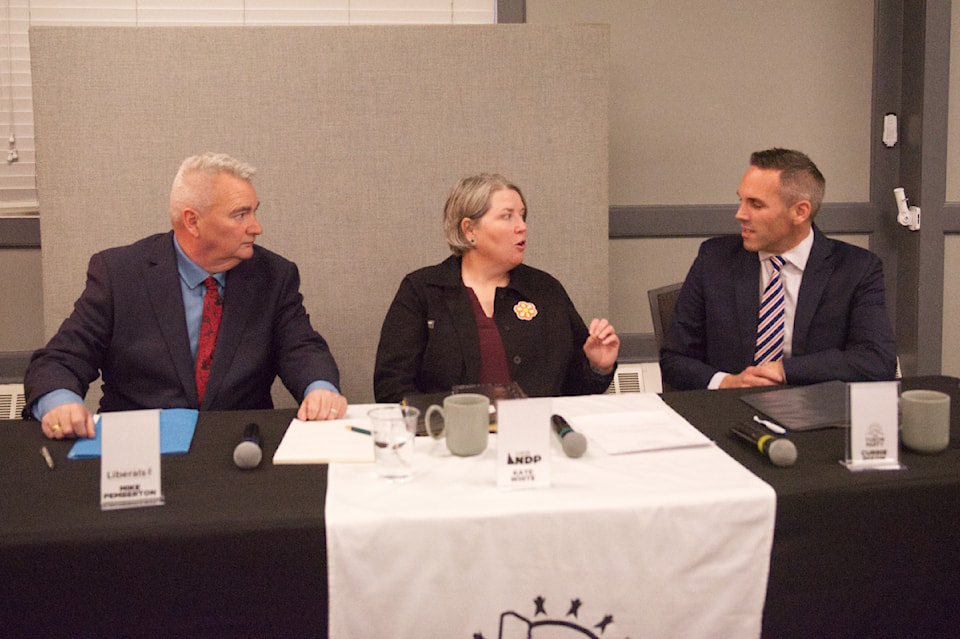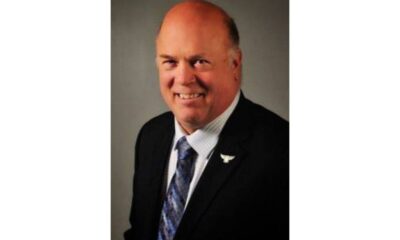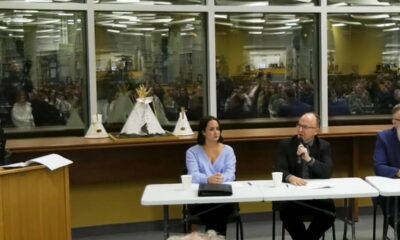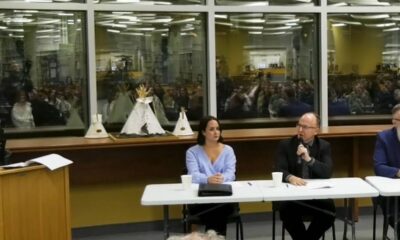Business
Candidates Clash in Yukon Political Forums, Address Key Issues

Political candidates in the Yukon faced off during two forums held at the Gold Rush Inn in Whitehorse on October 8 and 9, 2023. The events, organized by the Council of Yukon First Nations and the Yukon First Nation Chamber of Commerce, provided a platform for leaders to address pressing issues and engage with the public.
During the first forum, Premier Mike Pemberton of the Liberal Party issued an apology for comments made earlier this year at the Council of Yukon First Nations general assembly. Although the details of these comments remain unconfirmed, Pemberton stated, “I want to clearly and sincerely say I’m sorry. What I said at that moment was wrong. It didn’t reflect my values.” His remarks aimed to reassure Yukon First Nations leaders and community members of his commitment to respectful relations.
Pemberton’s apology was not the only highlight of the evening. He also addressed the controversy surrounding the release of a draft minerals framework to CBC Yukon, which had filed an access to information request. He attributed the release to an error by public service officials. Additionally, he promised to advocate for an increase in the federal northern living allowance and tie it to the consumer price index, a measure of inflation.
The premier criticized the Yukon Party for a perceived neglect of infrastructure during its fourteen years in power, stating, “They left it in disarray.” He pledged to expand primary care clinics, increase the medical travel subsidy, and enhance the Whitehorse hospital, particularly its operating rooms. Furthermore, Pemberton proposed creating a dedicated department focused on First Nations relations.
Opposition leader Currie Dixon of the Yukon Party acknowledged past strained relations between the Yukon government and First Nations but highlighted his commitment to improving collaboration. He remarked, “I think each of [the premiers] have had their strengths and weaknesses,” emphasizing the need to learn from previous interactions. Dixon promised to continue the Yukon Forum meetings, which facilitate communication between territorial government leadership and First Nations.
He also expressed concerns about unrealistic climate targets and advocated for a practical climate change action plan to reduce greenhouse gas emissions in the territory. His vision includes addressing the “infrastructure gap” in Yukon communities by seeking federal funding for major projects.
Meanwhile, Kate White, leader of the Yukon NDP, made several commitments aimed at addressing environmental and Indigenous issues. She pledged that an NDP government would conduct a public inquiry into the failures of several local mines, including the Victoria Gold Eagle Gold Mine. White also called for completing land use planning in collaboration with Yukon First Nations and proposed funding a universal school nutrition program in response to recent cuts in federal support.
White emphasized the importance of acting on all 94 calls to action issued by the Truth and Reconciliation Commission in 2015, which aim to address the legacy of the residential school system. She stated, “Committing to Yukon Forums is the absolute bare minimum.”
During the debate, candidates also addressed the current government’s work on new minerals legislation. White criticized her opponents’ track records on the issue, stating that First Nations support is essential for the territory’s success. “Industry knows that. Most everyone knows that,” she asserted.
Dixon echoed concerns from both industry and First Nations regarding the draft framework for minerals legislation. He committed to working collaboratively with First Nations to implement other aspects of the devolution transfer agreement.
The discussion also touched on the creation of the Yukon Health Authority, also known as Shäw Kwä’ą. Pemberton and White both expressed their commitment to advancing the authority, while White highlighted the need to address systemic racism within the Yukon healthcare system. She promised funding for harm reduction and prevention education and reiterated her commitment to ensuring access to primary care for all Yukoners. Dixon expressed support for certain initiatives of the health authority but raised concerns about the allocation of resources, urging investments directly into healthcare services rather than administrative positions.
The second forum, hosted by the Yukon First Nation Chamber of Commerce, allowed candidates to further discuss key topics such as mining, the B.C. grid connect project, and First Nations procurement policy. Recordings of both events will be made available online, providing greater access for Yukoners to engage with the political discourse ahead of the upcoming elections.
As the election approaches, the candidates remain focused on addressing critical issues affecting the Yukon and its communities, with promises and apologies shaping the political landscape.
-

 Politics4 weeks ago
Politics4 weeks agoSecwepemc First Nation Seeks Aboriginal Title Over Kamloops Area
-

 World5 months ago
World5 months agoScientists Unearth Ancient Antarctic Ice to Unlock Climate Secrets
-

 Entertainment5 months ago
Entertainment5 months agoTrump and McCormick to Announce $70 Billion Energy Investments
-

 Science5 months ago
Science5 months agoFour Astronauts Return to Earth After International Space Station Mission
-

 Lifestyle5 months ago
Lifestyle5 months agoTransLink Launches Food Truck Program to Boost Revenue in Vancouver
-

 Technology3 months ago
Technology3 months agoApple Notes Enhances Functionality with Markdown Support in macOS 26
-

 Lifestyle3 months ago
Lifestyle3 months agoManitoba’s Burger Champion Shines Again Amid Dining Innovations
-

 Top Stories2 months ago
Top Stories2 months agoUrgent Update: Fatal Crash on Highway 99 Claims Life of Pitt Meadows Man
-

 Politics4 months ago
Politics4 months agoUkrainian Tennis Star Elina Svitolina Faces Death Threats Online
-

 Sports5 months ago
Sports5 months agoSearch Underway for Missing Hunter Amid Hokkaido Bear Emergency
-

 Politics5 months ago
Politics5 months agoCarney Engages First Nations Leaders at Development Law Summit
-

 Technology5 months ago
Technology5 months agoFrosthaven Launches Early Access on July 31, 2025





















